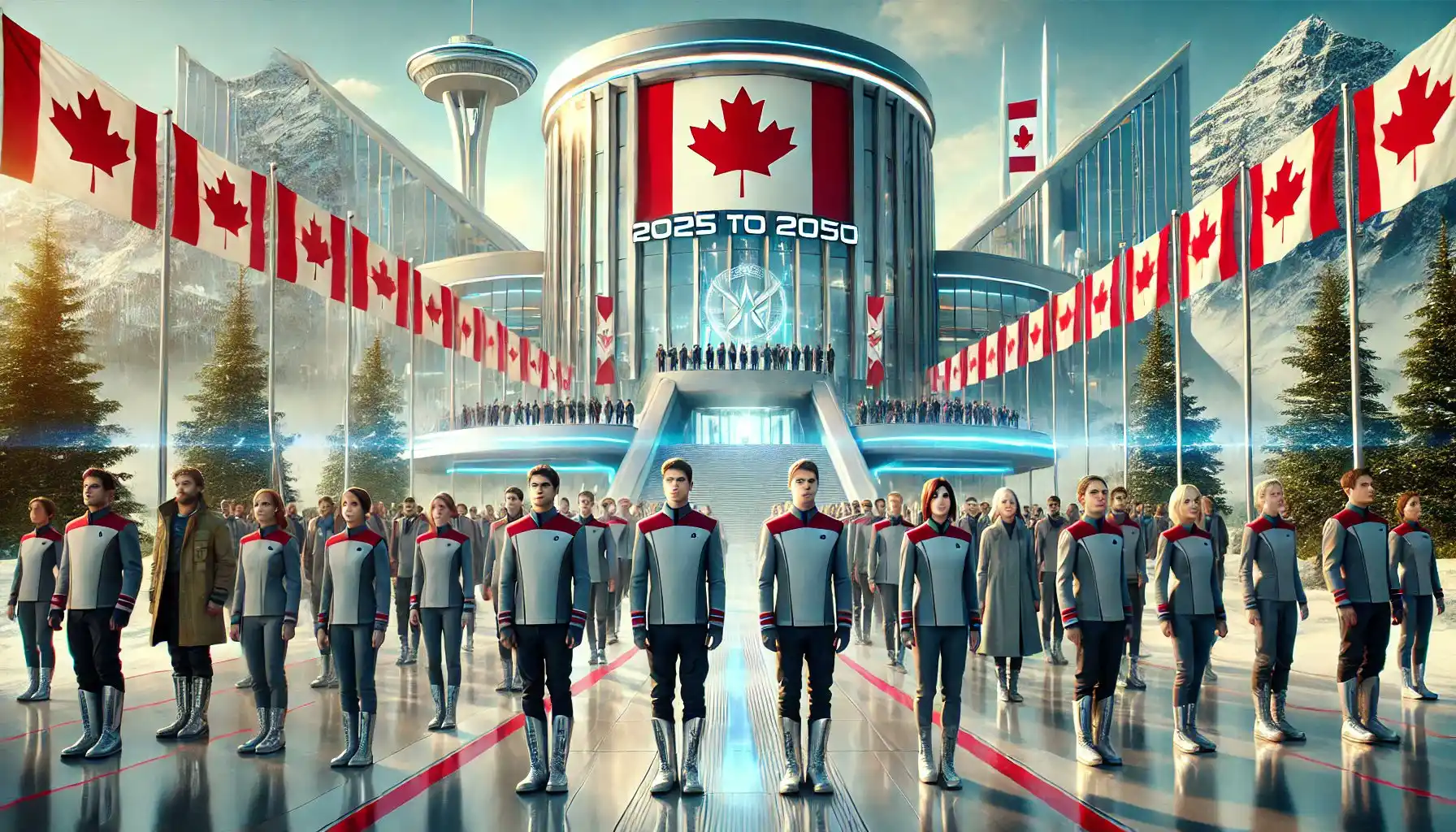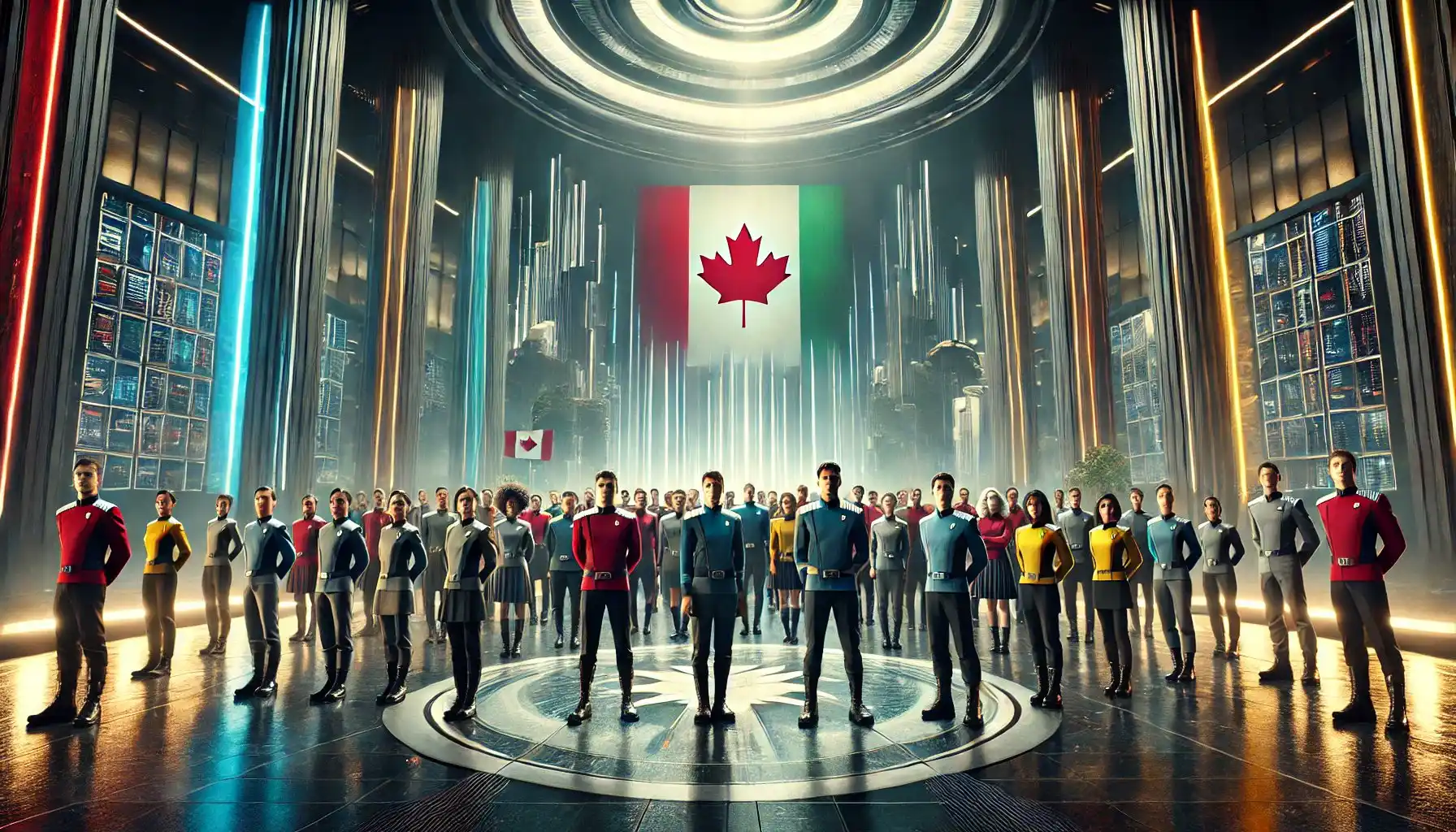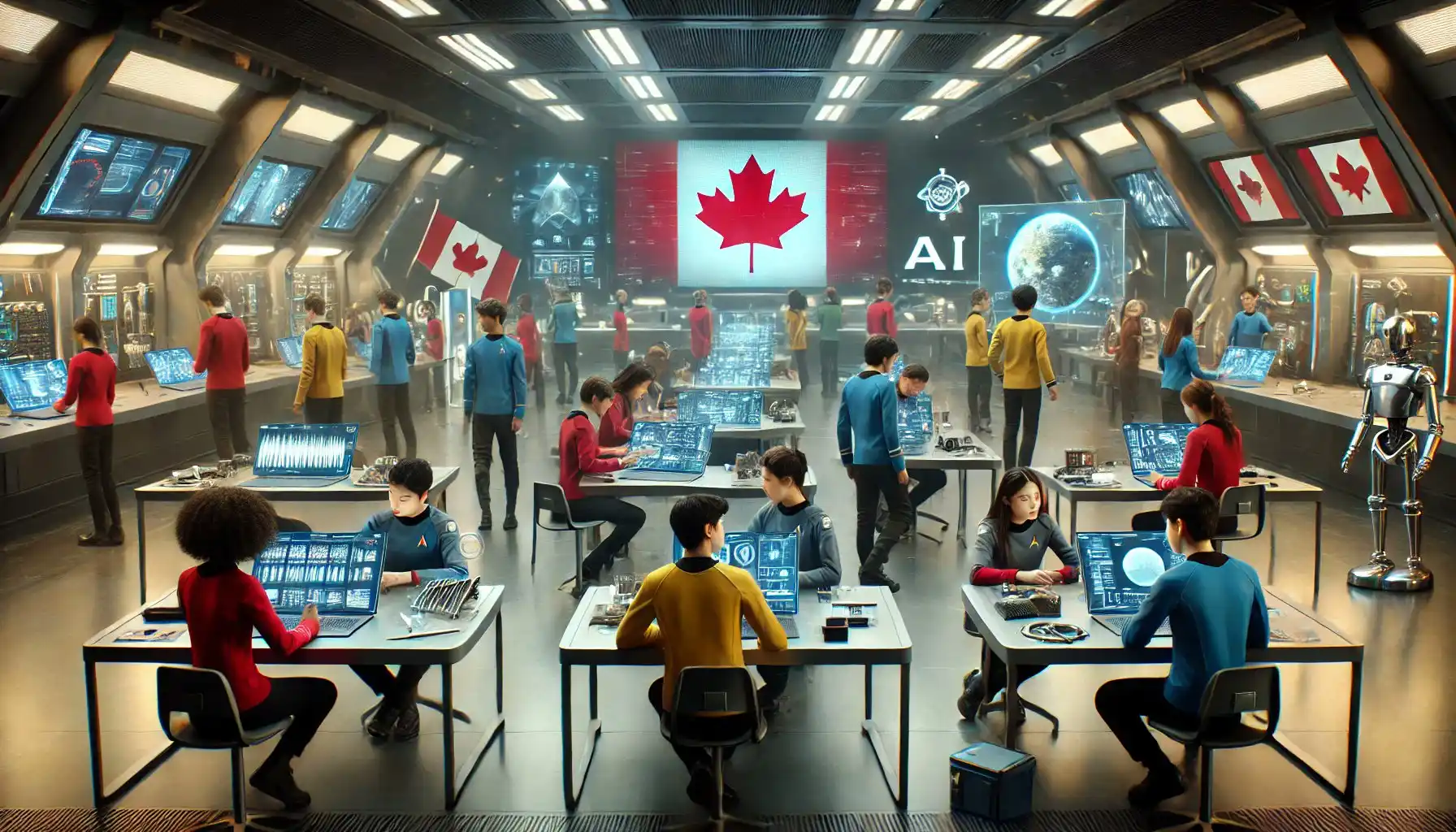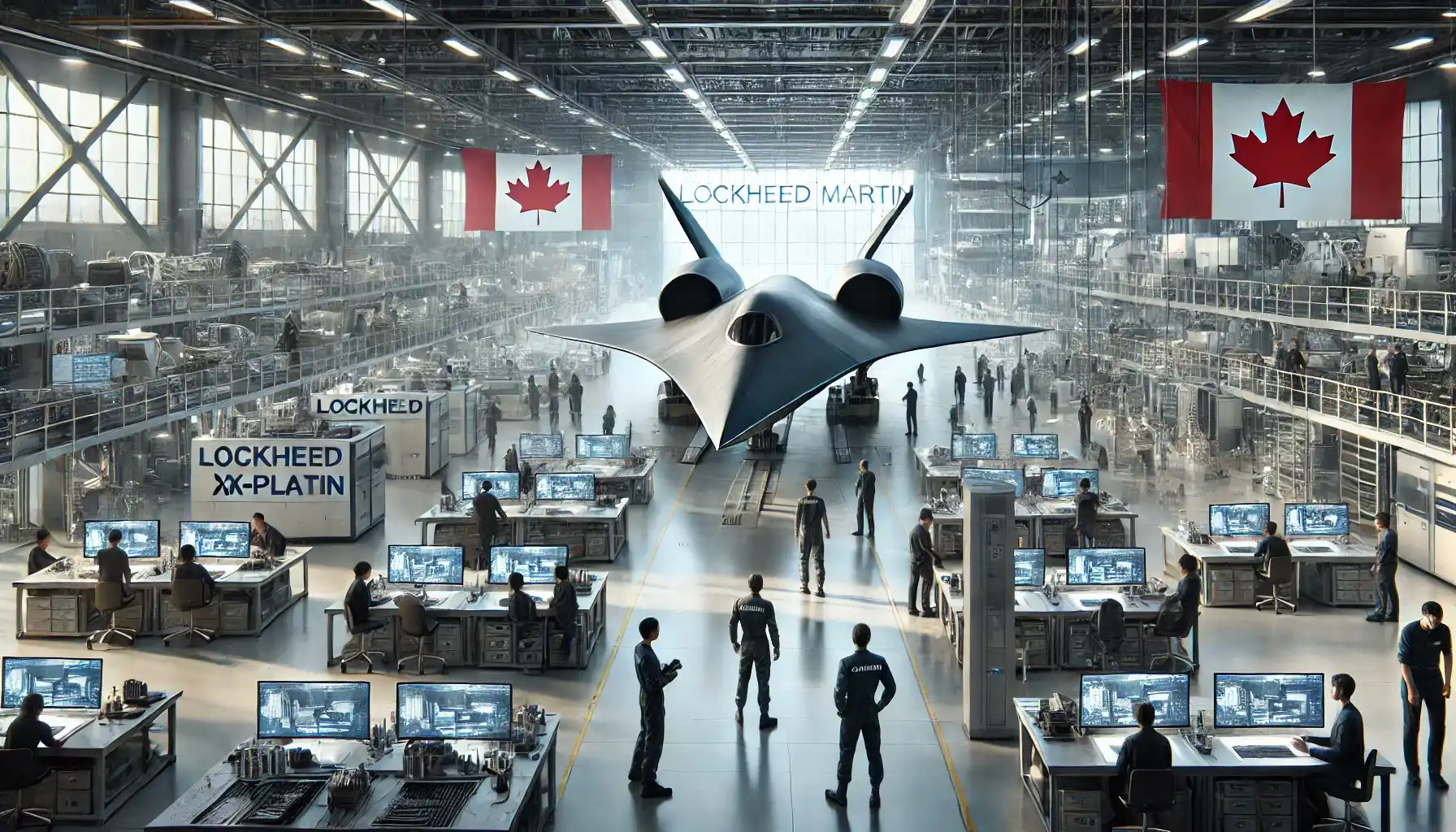Introduction: Embracing Canadian Values
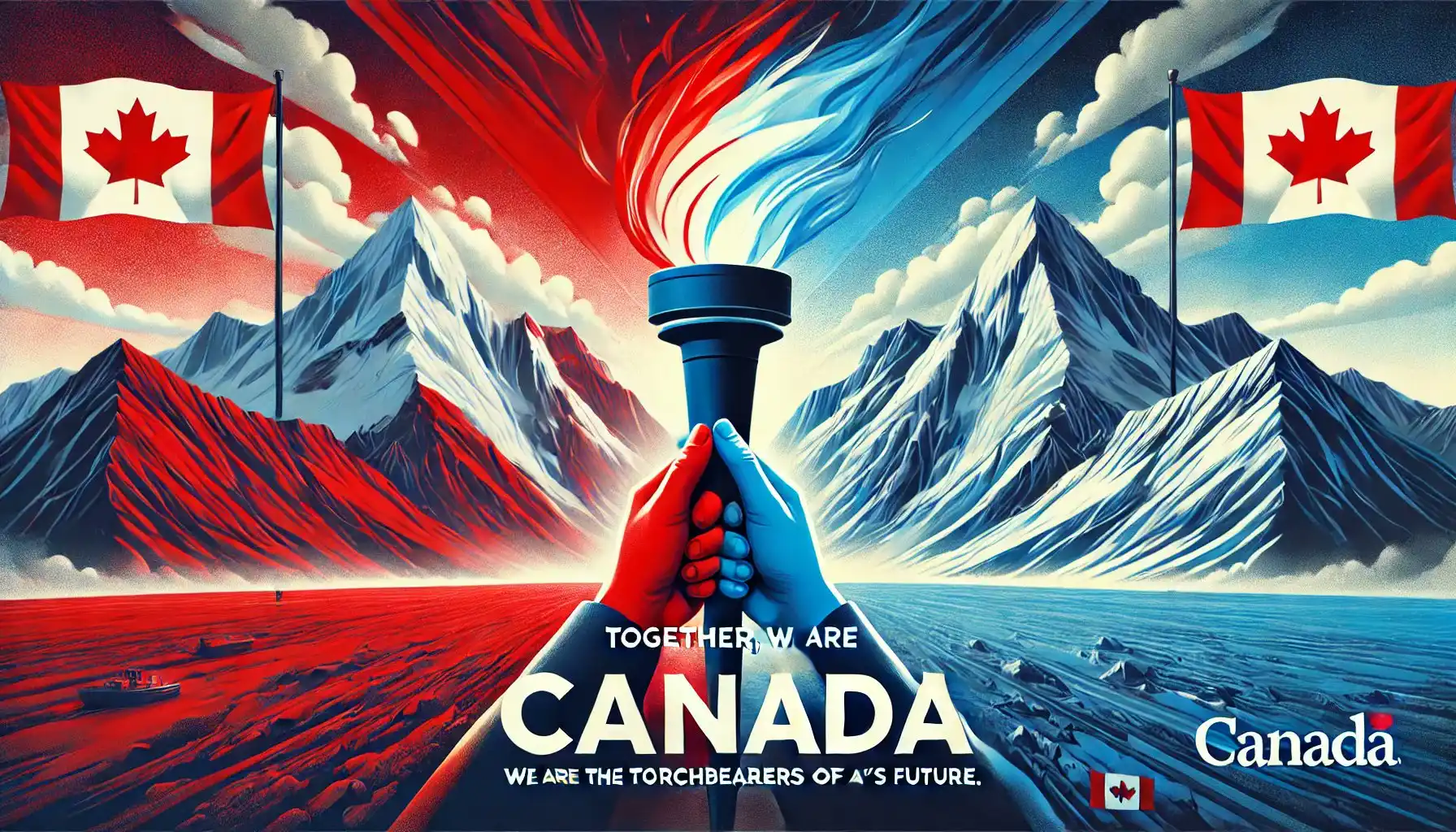
We bring the executive blue of corporate tech leadership, reaching from the 21st century into the 29th, with white lettering symbolizing our pursuit of moral clarity, ethical integrity, modernist philosophy, and technology philosophy — proven through civilization’s success. Together, we represent the full spectrum of Canada’s professionals (which is everyone in Canada — we’re all pros here!). 🤣
Our new blue and red icons, like the classic spirit of old, stand together in a trinity, representing a cohesive force that brings together both conservative (blue) and liberal (red) values with a third, unifying identity: foundational principles that are true and logical across all types of knowledge in Canada and the world.
Re-evaluating Canada’s Educational Foundation: Embracing Western Values & Technology Philosophy for a Prosperous Future
Core Philosophies Canada Should Prioritize
Pre-1960s Foundational Philosophies:
-
Enlightenment Ideals: Emphasize reason, individual rights, and scientific inquiry.
-
German Idealism & Romanticism: Focus on human potential, creativity, and the importance of subjective experience.
-
Existentialism & Pragmatism: Encourage personal responsibility, authenticity, and practical outcomes.
-
Logical Positivism: Promote rationality in science and societal frameworks, emphasizing logical analysis and empirical evidence.
Post-1960s Philosophies Aligned with Technology and Engineering (Current ‘Industry 4.0’ National Economy & Future Global Economy):
-
Philosophy of Technology: Ethical development in tech, ensuring Canada’s global leadership.
-
Systems Theory and Cybernetics: Structured, adaptable systems for resilient infrastructure in public and private sectors.
-
Computational Philosophy and AI Ethics: Navigate the digital age with integrity, safeguarding Canadian values while advancing technology responsibly.
-
Sustainability Ethics and Eco-Philosophy: Focus on eco-resilience, ethical growth, and proactive management of technological progress.
Integrating Western Philosophy and Spirituality
Foundational Texts in Western Philosophy:
-
Plato: “The Republic”
-
Aristotle: “Nicomachean Ethics”
-
Immanuel Kant: “Critique of Pure Reason”
-
Friedrich Nietzsche: “Thus Spoke Zarathustra”
-
Martin Heidegger: “Being and Time”
Key Works in Christian Spirituality:
-
Augustine of Hippo: “Confessions” and “The City of God”
-
Thomas à Kempis: “The Imitation of Christ”
-
Teresa of Ávila: “Interior Castle”
-
John of the Cross: “Dark Night of the Soul”
-
Dietrich Bonhoeffer: “The Cost of Discipleship”
Essential Texts in Western History:
-
Herodotus: “The Histories”
-
Thucydides: “History of the Peloponnesian War”
-
Alexis de Tocqueville: “Democracy in America”
-
Edward Gibbon: “The History of the Decline and Fall of the Roman Empire”
-
Norman Davies: “Europe: A History”
A Comprehensive Educational Model for Canada (Ages 6–18)
Section 1: K-12 Education – Building Moral Integrity, Critical Thinking, and Technological Proficiency
Philosophical, Ethical, and Technological Foundations for K-12
1. Early Grades (K-6):
These stories instill basic values of empathy, kindness, honesty, and introduce philosophical questions about existence and morality.
Activities: Puzzle-solving, pattern games, introductory logic exercises to develop critical thinking skills.
2. Middle Grades (7-9): Encouraging Deeper Ethical Thinking and Technological Skills
Students explore concepts of reality, self-improvement, and virtuous relationships.
Technological Proficiency:
-
Data Literacy and Cybersecurity Basics Curriculum Enhancements: Teach students how to collect, analyze, and interpret data responsibly. Skills Development: Understanding the importance of data privacy and practicing safe online behaviours.
-
Advanced Mathematics and Computational Thinking Curriculum Enhancements: Early introduction to algebra, geometry, statistics, and probability, progressing to calculus and discrete mathematics in higher grades. Skills Development: Emphasis on problem-solving, logical reasoning, and computational thinking skills to tackle complex challenges.
-
Computer Science and Programming Curriculum Enhancements: Start with visual programming languages like Scratch in elementary levels, advancing to text-based languages like Python or Java in middle and high school. Skills Development: Understanding algorithms, data structures, and software development principles.
-
Environmental Science and Sustainable Technologies Curriculum Enhancements: Education on climate change, renewable energy sources, and sustainable practices. Skills Development: Encouraging participation in projects promoting environmental stewardship and eco-friendly innovations.
-
Biotechnology and Life Sciences Curriculum Enhancements: Explore basic genetics, microbiology, and biotechnology applications. Skills Development: Conducting laboratory experiments to deepen understanding of biological processes.
3. High School (10-12): Mastery of Classical Philosophy, Advanced Ethics, and Technological Innovation
Advanced Western Philosophy:
Develops critical analysis and understanding of complex philosophical ideas.
Logic and Formal Reasoning:
Solidifies rigorous logical thinking necessary for advanced studies.
Technology and Engineering:
Key Focus Areas for K-12 STEM (Science, Technology, Engineering, and Mathematics) curriculum – Preparing Innovators for the Future:
-
Robotics and Automation – Curriculum Enhancements: Hands-on experience with building and programming robots using age-appropriate kits. Skills Development: Grasping the basics of automation, sensors, control systems, and mechanical engineering concepts.
-
Artificial Intelligence and Machine Learning – Curriculum Enhancements: Introduce fundamentals of AI through interactive projects, such as simple machine learning models and AI applications in daily life. Skills Development: Critical thinking about AI’s impact on society and ethical considerations.
-
Engineering Design and Innovation – Curriculum Enhancements: Implement design-thinking methodologies to foster creativity and innovation. Skills Development: Engaging in projects that involve planning, designing, testing, and refining solutions to real-world problems.
-
Space Science and Astronomy – Curriculum Enhancements: Stimulate interest in space exploration through studies of the solar system, space missions, and future space travel possibilities. Skills Development: Developing a sense of curiosity and understanding of our universe.
-
Interdisciplinary STEM Projects – Curriculum Enhancements: Encourage projects that integrate multiple STEM fields. Skills Development: Promoting collaboration, communication, and holistic problem-solving abilities.
Ethics in Technology:
Advanced History and Civic Responsibility:
Section 2: College and University – Specialized Knowledge in Industry 4.0 Fields
Core Areas of Study in College and University
Industry 4.0 Applied Technology Framework (32 Sectors)
1. Artificial Intelligence and Machine Learning
-
Focus Areas: Advanced neural networks, ethical AI, deep learning, human-centered AI.
-
Core Studies: Advanced machine learning algorithms, computational ethics, AI policy.
-
Key Textbooks: “Artificial Intelligence: A Modern Approach” by Stuart Russell and Peter Norvig,“Deep Learning” by Ian Goodfellow, Yoshua Bengio, and Aaron Courville
-
Projects: Develop sophisticated AI models for healthcare diagnostics, finance, or environmental sustainability.
2. Blockchain and Decentralized Systems
-
Focus Areas: Advanced cryptography, decentralized applications (DApps), smart contracts.
-
Core Studies: Blockchain architecture, consensus mechanisms, decentralized governance.
-
Key Textbooks: “Mastering Bitcoin” by Andreas M. Antonopoulos, “Blockchain Revolution” by Don Tapscott and Alex Tapscott
-
Projects: Create decentralized applications for supply chain management or secure voting systems.
3. Robotics and Autonomous Systems
-
Focus Areas: Advanced robotics, autonomous vehicles, machine vision.
-
Core Studies: Robotics engineering, AI integration, sensor technologies.
-
Key Textbooks: “Introduction to Autonomous Mobile Robots” by Roland Siegwart, Illah R. Nourbakhsh, and Davide Scaramuzza, “Robotics: Modelling, Planning and Control” by Bruno Siciliano et al.
-
Projects: Design autonomous drones or self-driving car prototypes.
4. Data Science and Big Data Analytics
-
Focus Areas: Advanced statistical modelling, big data technologies, data visualization.
-
Core Studies: Machine learning applications, data ethics, predictive analytics.
-
Key Textbooks: “Data Science from Scratch” by Joel Grus “Big Data: Principles and Best Practices of Scalable Real-Time Data Systems” by Nathan Marz and James Warren
-
Projects: Implement big data solutions for healthcare analytics or economic forecasting.
5. Sustainable Technology and Green Engineering
-
Focus Areas: Renewable energy systems, sustainable design, environmental policy.
-
Core Studies: Advanced renewable technologies, climate modelling, ecological impact assessment.
-
Key Textbooks: “Renewable Energy: Power for a Sustainable Future” by Stephen Peake and Joseph Jacobson,“Cradle to Cradle: Remaking the Way We Make Things” by William McDonough and Michael Braungart
-
Projects: Design sustainable urban infrastructure or develop technologies for carbon capture.
6. Biotechnology and Genetics
-
Focus Areas: Genetic engineering, synthetic biology, bio-informatics.
-
Core Studies: Genome editing technologies, computational biology, ethical considerations in biotech.
-
Key Textbooks:“Molecular Biotechnology: Principles and Applications of Recombinant DNA” by Bernard R. Glick, Jack J. Pasternak, and Cheryl L. Patten,“Synthetic Biology: A Primer” by Paul S. Freemont and Richard I. Kitney
-
Projects: Engineer genetic solutions for disease treatment or agricultural enhancements.
7. Cybersecurity and Ethical Hacking
-
Focus Areas: Advanced cybersecurity strategies, ethical hacking methodologies, cyber policy.
-
Core Studies: Cyber defense systems, threat analysis, cryptography.
-
Key Textbooks: “The Art of Deception” by Kevin D. Mitnick “Cybersecurity and Cyberwar: What Everyone Needs to Know” by P.W. Singer and Allan Friedman
-
Projects: Develop advanced intrusion detection systems or conduct comprehensive security audits.
8. Advanced Manufacturing and Smart Factories
-
Focus Areas: Automation technologies, Internet of Things (IoT) integration, digital twins.
-
Core Studies: Advanced manufacturing processes, smart sensors, real-time data analytics.
-
Key Textbooks: “Smart Manufacturing: Concepts and Methods” by Masoud Soroush et al.,“Industry 4.0: The Industrial Internet of Things” by Alasdair Gilchrist
-
Projects: Develop automation systems for manufacturing or create digital twin models for factory optimization.
9. Internet of Things (IoT) and Edge Computing
-
Focus Areas: Smart sensors, edge AI, real-time processing.
-
Core Studies: IoT protocols, edge computing architectures.
-
Key Textbooks: “Building the Internet of Things” by Maciej Kranz, “Edge Computing: A Primer” by Jie Cao et al.
-
Projects: Implement IoT solutions for smart homes or industrial monitoring systems.
10. Quantum Computing
-
Focus Areas: Quantum algorithms, quantum cryptography, quantum machine learning.
-
Core Studies: Quantum mechanics, quantum information theory, quantum error correction.
-
Key Textbooks: “Quantum Computation and Quantum Information” by Michael A. Nielsen and Isaac L. Chuang, “An Introduction to Quantum Computing” by Phillip Kaye, Raymond Laflamme, and Michele Mosca
-
Projects: Develop quantum algorithms for complex problem-solving in cryptography or optimization.
11. Nanotechnology and Material Science
-
Focus Areas: Nano-engineered materials, nanomedicine, nanoelectronics.
-
Core Studies: Nanofabrication techniques, characterization methods, applications in energy and medicine.
-
Key Textbooks: “Introduction to Nanotechnology” by Charles P. Poole Jr. and Frank J. Owens, “Nanostructures and Nanomaterials: Synthesis, Properties and Applications” by Guozhong Cao and Ying Wang
-
Projects: Synthesize nano-materials for targeted drug delivery or energy storage solutions.
12. Augmented Reality (AR) and Virtual Reality (VR)
-
Focus Areas: Immersive experiences, VR in training, healthcare applications.
-
Core Studies: Unity, Unreal Engine, VR/AR development, human-computer interaction.
-
Key Textbooks: “Learning Virtual Reality” by Tony Parisi, “Augmented Reality: Principles and Practice” by Dieter Schmalstieg and Tobias Hollerer
-
Projects: Develop VR programs for medical simulations or AR apps for education.
13. Smart Cities and Urban Planning
-
Focus Areas: Sustainable city infrastructure, IoT for urban management, smart transportation.
-
Core Studies: Urban analytics, environmental monitoring, urban policy.
-
Key Textbooks: “Smart Cities: Big Data, Civic Hackers, and the Quest for a New Utopia” by Anthony M. Townsend, “Planning Sustainable Cities and Regions” by Karen Chapple
-
Projects: Design smart city initiatives integrating IoT and data analytics for improved urban living.
14. Agricultural Technology (AgriTech)
-
Focus Areas: Precision agriculture, smart irrigation, crop monitoring.
-
Core Studies: Soil science, agricultural robotics, data analytics in farming.
-
Key Textbooks: “Precision Agriculture Technology for Crop Farming” by Qin Zhang,“The Internet of Things in the Agricultural Industry” by Peter Friess
-
Projects: Create automated crop monitoring systems or develop drones for precision spraying.
15. Environmental Monitoring and Climate Tech
-
Focus Areas: Pollution tracking, ecological modelling, climate data analytics.
-
Core Studies: Environmental science, remote sensing, climate change mitigation strategies.
-
Key Textbooks:“Environmental Monitoring and Characterization” by Janick Artiola, Ian L. Pepper, and Mark L. Brusseau “Climate Change and Climate Modeling” by J. David Neelin
-
Projects: Monitor air and water quality using IoT sensors or develop models for climate prediction.
16. Supply Chain Automation and Logistics Tech
-
Focus Areas: Autonomous logistics, warehouse robotics, blockchain for supply chains.
-
Core Studies: Supply chain management, logistics optimization, automation technologies.
-
Key Textbooks: “Supply Chain Management: Strategy, Planning, and Operation” by Sunil Chopra, “Logistics & Supply Chain Management” by Martin Christopher
-
Projects: Develop autonomous delivery systems or implement blockchain solutions for supply chain transparency.
17. Renewable Energy Technology
-
Focus Areas: Solar, wind, hydroelectric, energy storage.
-
Core Studies: Renewable energy systems, energy conversion, grid integration.
-
Key Textbooks: “Renewable Energy Systems” by Henrik Lund, “Energy for Sustainability: Technology, Planning, Policy” by John Randolph and Gilbert M. Masters
-
Projects: Design micro-grid solutions or develop efficient energy storage systems.
18. Additive Manufacturing and 3D Printing
-
Focus Areas: Prototyping, customized manufacturing, materials engineering.
-
Core Studies: 3D printing technologies, material science, design optimization.
-
Key Textbooks: “Additive Manufacturing Technologies” by Ian Gibson, David Rosen, and Brent Stucker “Fabricated: The New World of 3D Printing” by Hod Lipson and Melba Kurman
-
Projects: Prototype medical implants, aerospace components, or customized consumer products.
19. Human-Computer Interaction (HCI) and User Experience (UX)
-
Focus Areas: Cognitive science, UX design, accessibility.
-
Core Studies: Interface design principles, usability testing, user-centered design.
-
Key Textbooks:“The Design of Everyday Things” by Don Norman “About Face: The Essentials of Interaction Design” by Alan Cooper, Robert Reimann, David Cronin, and Christopher Noessel
-
Projects: Design accessible interfaces for software applications or conduct usability studies.
20. Telecommunications and 5G Technology
-
Focus Areas: Wireless communication, network infrastructure, IoT connectivity.
-
Core Studies: Signal processing, network protocols, spectrum management.
-
Key Textbooks:“Wireless Communications” by Andrea Goldsmith “5G Mobile and Wireless Communications Technology” by Afif Osseiran, Jose F. Monserrat, and Patrick Marsch
-
Projects: Develop applications leveraging 5G capabilities or optimize network performance.
21. Space Technology and Exploration
-
Focus Areas: Satellite technology, space missions, planetary science.
-
Core Studies: Astrodynamics, spacecraft design, remote sensing.
-
Key Textbooks: “Fundamentals of Astrodynamics” by Roger R. Bate, Donald D. Mueller, and Jerry E. White “Space Mission Engineering: The New SMAD” by James R. Wertz, David F. Everett, and Jeffrey J. Puschell
-
Projects: Design satellite systems or plan hypothetical space missions.
22. Autonomous Vehicles and Transportation
-
Focus Areas: Self-driving cars, intelligent transportation systems, vehicular networks.
-
Core Studies: Control systems, sensor fusion, traffic modelling.
-
Key Textbooks: “Autonomous Vehicle Technology: A Guide for Policymakers” by RAND Corporation “Vehicle Dynamics and Control” by Rajesh Rajamani
-
Projects: Develop algorithms for autonomous navigation or simulate intelligent transportation networks.
23. Bio-informatics and Computational Biology
-
Focus Areas: Genome sequencing, protein structure prediction, biological data analysis.
-
Core Studies: Computational genomics, molecular modelling, systems biology.
-
Key Textbooks: “Bioinformatics Algorithms: An Active Learning Approach” by Phillip Compeau and Pavel Pevzner “Introduction to Bioinformatics” by Arthur M. Lesk
-
Projects: Analyze genetic data for disease research or develop computational models of biological systems.
24. Healthcare Technology and Medical Devices
-
Focus Areas: Biomedical engineering, medical imaging, wearable health tech.
-
Core Studies: Human physiology, device design, regulatory standards.
-
Key Textbooks:“Medical Instrumentation: Application and Design” by John G. Webster,“Introduction to Biomedical Engineering” by John Enderle and Joseph Bronzino
-
Projects: Design medical devices or develop software for health monitoring.
25. Financial Technology (FinTech)
-
Focus Areas: Digital banking, cryptocurrency, financial data analytics.
-
Core Studies: Financial systems, risk management, blockchain applications in finance.
-
Key Textbooks:“FinTech Innovation: From Robo-Advisors to Goal Based Investing and Gamification” by Paolo Sironi,“The FINTECH Book” by Susanne Chishti and Janos Barberis
-
Projects: Develop fin-tech applications or implement blockchain solutions for financial services.
26. Education Technology (EdTech)
-
Focus Areas: Online learning platforms, adaptive learning, educational data analytics.
-
Core Studies: Learning theories, instructional design, technology integration in education.
-
Key Textbooks:“e-Learning and the Science of Instruction” by Ruth C. Clark and Richard E. Mayer, “Disrupting Class: How Disruptive Innovation Will Change the Way the World Learns” by Clayton M. Christensen, Curtis W. Johnson, and Michael B. Horn
-
Projects: Develop educational software or research the effectiveness of technology in learning.
27. Ethics and Policy in Emerging Technologies
-
Focus Areas: Tech policy, ethical frameworks, societal impacts.
-
Core Studies: Philosophy of technology, regulatory environments, public policy.
-
Key Textbooks: “The Ethics of Invention: Technology and the Human Future” by Sheila Jasanoff,“Technology and the Virtues: A Philosophical Guide to a Future Worth Wanting” by Shannon Vallor
-
Projects: Analyze policy implications of new technologies or develop ethical guidelines.
28. Cloud Computing and Distributed Systems
-
Focus Areas: Cloud architecture, distributed computing, virtualization.
-
Core Studies: Networking, data storage, security in cloud environments.
-
Key Textbooks:“Distributed Systems: Concepts and Design” by George Coulouris, Jean Dollimore, Tim Kindberg, and Gordon Blair “Cloud Computing: Theory and Practice” by Dan C. Marinescu
-
Projects: Develop cloud-based applications or design distributed computing solutions.
29. High-Performance Computing
-
Focus Areas: Super-computing, parallel processing, computational modelling.
-
Core Studies: Algorithms for HPC, hardware architectures, performance optimization.
-
Key Textbooks: “Introduction to High Performance Computing for Scientists and Engineers” by Georg Hager and Gerhard Wellein, “Parallel Programming for Multi-core and Cluster Systems” by Thomas Rauber and Gudula Rünger
-
Projects: Optimize computational models or develop parallel algorithms.
30. Energy Storage and Battery Technologies
-
Focus Areas: Advanced batteries, super-capacitors, energy management systems.
-
Core Studies: Electro-chemistry, materials science, system integration.
-
Key Textbooks: “Battery Systems Engineering” by Christopher D. Rahn and Chao-Yang Wang,“Electrochemical Energy Storage for Renewable Sources and Grid Balancing” by Patrick T. Moseley and Jurgen Garche
-
Projects: Develop improved battery technologies or energy storage solutions.
31. Genetic Engineering and Synthetic Biology
-
Focus Areas: CRISPR technology, gene synthesis, metabolic engineering.
-
Core Studies: Genetic circuits, bioethics, regulatory considerations.
-
Key Textbooks: “Principles of Synthetic Biology” by Voigt and Khalil “Synthetic Biology: Tools and Applications” by Huimin Zhao
-
Projects: Create synthetic organisms for industrial applications or therapeutic purposes.
32. Trans-humanism and Human Enhancement Technologies
-
Focus Areas: Neurotechnology, prosthetics, ethical considerations.
-
Core Studies: Human augmentation, bioethics, regulatory frameworks.
-
Key Textbooks: “The Transhumanist Reader” edited by Max More and Natasha Vita-More,“Beyond Humanity: Cyberevolution and Future Minds” by Gregory S. Paul and Earl D. Cox
-
Projects: Research human-machine interfaces or develop advanced prosthetic technologies.
Examples of Leading-Edge STEM Degree Programs:
-
Artificial Intelligence and Data Science: Focuses on machine learning, big data analytics, and AI ethics. Prepares graduates for roles in developing intelligent systems across industries.
-
Biomedical Engineering and Biotechnology: Combines engineering principles with biological sciences to innovate in healthcare technologies. Includes studies in genetic engineering, prosthetics, and medical device design.
-
Renewable Energy Engineering: Emphasizes sustainable energy solutions like solar, wind, and bio-energy. Addresses global energy challenges and climate change mitigation.
-
Cybersecurity and Information Assurance:Focuses on protecting digital infrastructure and data from cyber threats. Includes training in cryptography, network security, and ethical hacking.
-
Environmental Science and Climate Change: Addresses environmental conservation, climate modelling, and sustainable development. Prepares graduates to develop strategies for environmental protection and sustainability.
-
Robotics and Mechatronics Engineering:Integrates mechanical, electronic, computer, and control engineering. Equips students to design and develop advanced robotic systems and automation technologies.
-
Quantum Computing and Information Sciences: Explores quantum algorithms, quantum communication, and computational methods. Positions graduates at the forefront of next-generation computing technologies.
-
Nanotechnology Engineering: Deals with the manipulation of matter at the atomic and molecular scale. Opens avenues in material science, electronics, and medical applications.
-
Interdisciplinary Environmental Engineering:Combines civil, chemical, and mechanical engineering principles to address environmental issues. Focuses on water treatment, waste management, and pollution control technologies.
-
Space Science and Aerospace Engineering:Involves satellite technology, space exploration missions, and aerospace design. Prepares students for careers in the expanding space industry.
Conclusion: Building a Resilient Canadian Future Through a Balanced Educational Framework
This comprehensive educational model — from integrating advanced spiritual, advanced philosophical and advanced technological studies in K-12 to specialized high-level Industry 4.0 training in college and university — ensures Canadians are well-prepared for the next century.
By grounding students in Western philosophical tradition, spiritual principles, and applied knowledge in emerging technologies, Canada can sustain a competitive advantage rooted in both values and vision, and potentially accelerate beyond all peers in economic growth and tech advancement rate.
Our unique blend of tradition and innovation sets the stage for a generation capable of leading Canada with clarity, responsibility, and STEM capability.
This plan creates the foundation for a Canada that not only prospers but also inspires globally, equipped to face the challenges and opportunities of a rapidly advancing world.
Final Thoughts: Preserving Canadian Values and Western Unity
As a Western nation, Canada invites newcomers to integrate into our shared heritage, learning our foundational philosophies. This unity preserves our cultural identity and ensures our education aligns with Canadian and Western traditions. By embracing this comprehensive curriculum, we honour the efforts of previous generations while preparing future ones to lead with integrity and innovation.
In 2024, Canada stands at a crossroads. By choosing renewal and common sense, we secure a prosperous and unified future, ready to lead on the world stage with both moral clarity and competitive strength.
Appendix: Additional Explanatory Insights
To further emphasize the importance of this educational transformation, it’s crucial to acknowledge that the 21st century demands a workforce that is not only technologically proficient but also spiritually, philosophically, ethically, logically, mathematically and physically grounded (to the truth of physics).
The integration of advanced philosophical studies into K-12 education is not merely an academic exercise but a necessity for developing critical thinkers with a wide set of foundational principles and logic principles required to navigating the complexities of modern society and complex tech systems via high level interface systems.
By shifting advanced studies traditionally reserved for higher education into earlier stages, we capitalize on the heightened cognitive abilities of young learners in the digital age. This approach ensures that students are better prepared for the rapid technological advancements and ethical dilemmas they will inevitably face, and provides students with more time in life to accomplish more tasks and to engage more with reality, rather than becoming lifelong learners.
Appendix: Notes on Philosophical Scope of Educational Framework
In developing this educational framework, we have intentionally focused on philosophies that align directly with our goals of fostering technological advancement, ethical reasoning, and societal cohesion. While numerous post-1960s philosophies have have been part of educational curricula over the past few decades (training three generations, resulting in sub-optimal outcomes for Canada), this paper emphasizes philosophies that we believe were neglected and overlooked, and that will best equip Canadians for the challenges and opportunities of the future.
Our selection is a strategic choice to concentrate on foundational principles that support innovation, critical thinking, technological adaptation, Canadian foundational values and shared values as well. By doing so, we aim to provide a clear and focused path that prepares students to lead with integrity and expertise in a rapidly evolving world.
Additionally, we recognize the importance of personal growth beyond the core curriculum, and wish to promote and help maximize personal choice driven education selection. Evenings, weekends, and summer vacations offer opportunities for individuals to explore additional philosophies and empathy-based skills programs if they wish, allowing for a well-rounded and self-directed educational experience. In addition, there are 32 training specialty program tracks as part of Industry 4.0 to choose from.
Implementing the Curriculum: Steps Forward
-
Curriculum Development: Collaborate with educators, philosophers, technologists, applied scientists, research scientists, engineers and policymakers to develop detailed lesson plans and resources for each educational stage.
-
Teacher Training: Provide comprehensive training for educators to effectively teach advanced philosophical concepts and technological skills to younger students.
-
Resource Allocation: Invest in technological infrastructure and learning materials necessary to support advanced studies in K-12 education.
-
Assessment and Evaluation: Establish new metrics for evaluating student progress that reflect the integrated curriculum’s emphasis on critical thinking, ethical reasoning, and technological proficiency.
-
Community Engagement: Involve parents, community leaders, and industry professionals in the educational process to ensure alignment with societal needs and expectations.
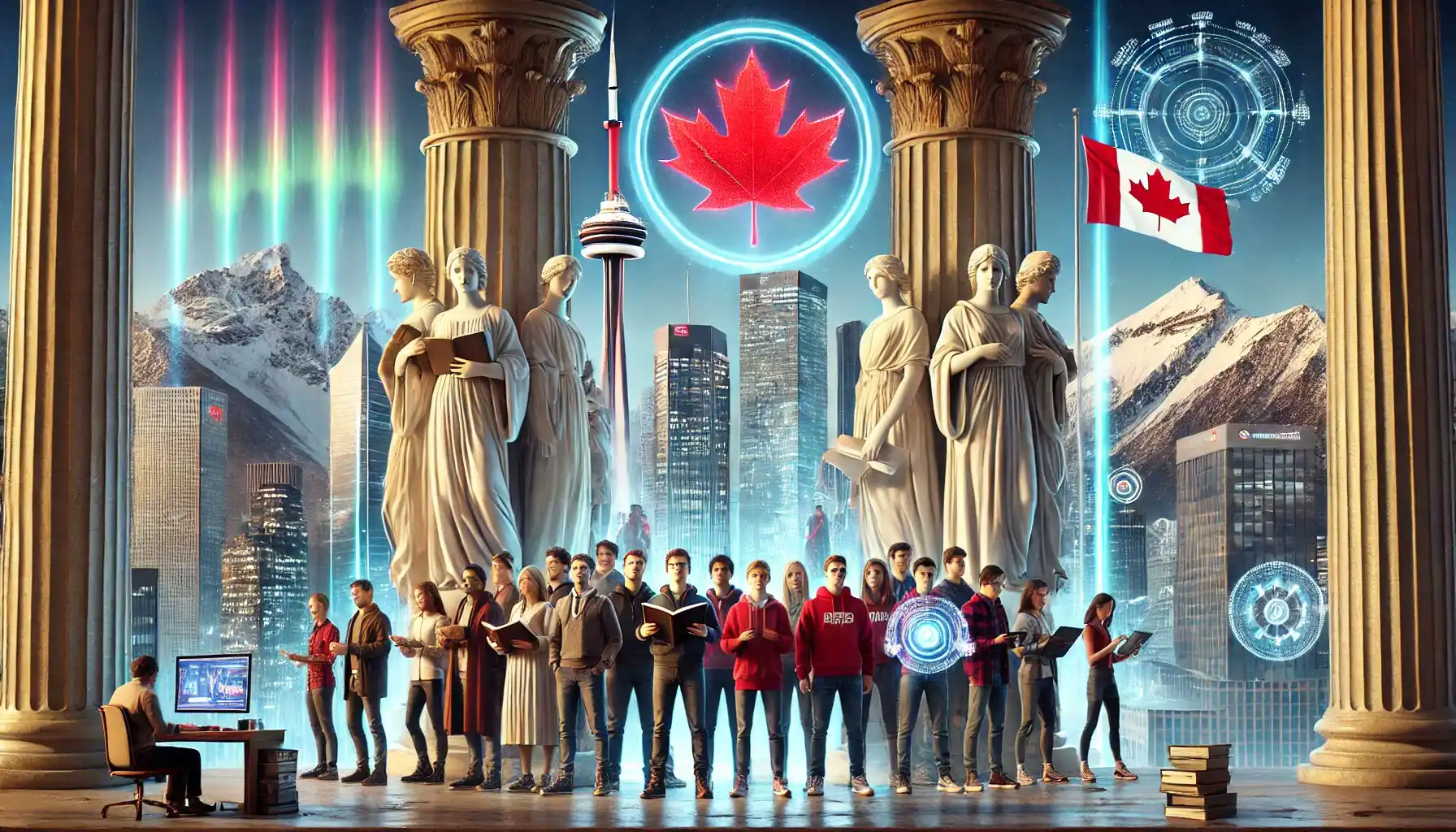
Related Content:
Title: “Embracing AI in Education: The Future of Computer Science and Software Engineering” https://skillsgaptrainer.com/embracing-ai-in-education/
Title: “Using Policy Outcomes to Identify Problematic Parliamentarians: A Closer Look at Key Failures in Immigration, Housing, Diversity, Inclusion and Firearms Legislation” https://x.com/SkillsGapTrain/status/1848531303181812129
Title:“Decoding the Security Enigma: An Analytical Examination of Justin Trudeau’s Governance and Canada’s Vulnerabilities in National Security” https://x.com/SkillsGapTrain/status/1846617485350502431
Title:“Mastering LoRa Technology and IoT Solutions with LILYGO Devices” https://x.com/SkillsGapTrain/status/1846462658662617488
Title: “What you talking about. We live in Canada. This is European region or Western region of the world. Regions don’t just change.” https://x.com/SkillsGapTrain/status/1843597434863206539
Title: “The Fragility of Civilization: Real-World Parallels to Leave the World Behind in America and Canada”https://x.com/SkillsGapTrain/status/1846309393660629058
Title: “Designing the Superior Fighting Force for the 21st Century: Integrating Blockchain Technology, Artificial Intelligence, Engineering Innovations, & Modern Military Strategies” https://x.com/SkillsGapTrain/status/1844981829750665720
Title:“Designing the 21st Century “Enterprise”: A Fusion of SpaceX Starships and Sci-Fi Vision” https://x.com/SkillsGapTrain/status/1845405324699668740
Title:“Creating Worlds: How the Genesis Sphere Brings Life to Star Systems” https://x.com/SkillsGapTrain/status/1845170029526175749
Title:“Engineering the Moon into a New Earth: A Positive Tech Vision for Sustainable Space Colonization and Engineering The Next Generation” https://skillsgaptrainer.com/engineering-the-moon-into-a-new-earth/
Title: “Echoes of the Past: The Best of Two Worlds” https://skillsgaptrainer.com/echoes-of-the-past-the-best-of-two-worlds/
Title: “Charting the Course: Realigning the AI Safety Board for a Future Forged in Innovation and Exploration” https://skillsgaptrainer.com/charting-the-course-realigning-the-ai-safety-board/
Title: “Masters of the Skies and the Digital Frontier: Commanding the Integration of Skills Gap Trainer Intelligence into U.S. Air Force and Space Command AI Systems” https://x.com/SkillsGapTrain/status/1802888099795780044
Title: “Rediscovering Balance: Autonomy and Control in the Age of AI” https://x.com/SkillsGapTrain/status/1844696127012065791
Title: “The Alarming Vulnerability of Security Systems: A Historical Analysis and Urgent Call for Quantum Blockchain and AI Safety Investments” https://x.com/SkillsGapTrain/status/1844534402602193403
Title: “Design Proposal for an Armoured and Adventure-Ready Tesla Roadster” https://x.com/SkillsGapTrain/status/1844435443372232976
Title:“Critique of the 15-Minute City Model: A Call for Practicality, Sustainability, and Security” https://x.com/SkillsGapTrain/status/1843922512050004143
Title:“The Great Schism Revisited: A Path to Spiritual, Philosophical, and Technological Unity, Aiming for Heaven, Not Hell” https://x.com/SkillsGapTrain/status/1834784171291471885
Title:“The Evolution of Thought: From the Birth of Islam to Modern Engineering and Philosophy” https://x.com/SkillsGapTrain/status/1833941005382680676
Title:“The Knowledge Singularity in Modern Engineering: Integrating Spirituality, Philosophy, Ethics & AI for a Positive Tech Vision” https://x.com/SkillsGapTrain/status/1834246753391948096
Title: “Blueprint for Resilience: 27 Strategic Actions to Safeguard Humanity’s Future” https://x.com/SkillsGapTrain/status/1839994350610043209
Title:“Guardians of the West: Defending Canada’s True Identity” https://x.com/SkillsGapTrain/status/1843554658255577453
Title: “Science-Deception: How PM Trudeau Ignores Science and Greta Thunberg Rejects Scientific Study for Activism” https://x.com/SkillsGapTrain/status/1831309288553513314
Title: “Roots of Knowledge: How Religion & Philosophy Shape Moral Foundations in an Era of Ideological Chaos” https://x.com/SkillsGapTrain/status/1831229492544913613
Title:“Quo Vadis America 2024: A Crossroads Between Revolutionary Change and Foundational Principles” https://x.com/SkillsGapTrain/status/1830722720390377953
Title: “Battle for Humanity: How Rising Ideological Extremism Could Ignite a Century of Conflict” https://x.com/SkillsGapTrain/status/1830676962895110416
Title: “Transcending Limits: Embracing Nietzsche’s Übermensch in the Age of AI and Powered Assault Armour”https://x.com/SkillsGapTrain/status/1820656729786323323
Title:“Rebuilding Strength: Protecting Canada’s Key Sectors” https://x.com/SkillsGapTrain/status/1818219740881412384
Title: “Towards a Sustainable Future: Integrating Hydrogen, CNG, and Electric Vehicles in Modern Transportation” https://x.com/SkillsGapTrain/status/1818158056431141236
Title: “Enhancing Vehicle Efficiency Through Weight Reduction and Natural Gas Hybrid Systems” https://x.com/SkillsGapTrain/status/1817313442212065628
Title: “Engineering the Future: Leveraging the NVIDIA Developer Program and Deep Learning Institute for a Positive Tech Vision” https://x.com/SkillsGapTrain/status/1814141111599800621
Report: “Economic Impact of Blocking Resource and Energy Sectors in Canada” https://x.com/SkillsGapTrain/status/1813138214078619961
Title: “Echoes of the Future: How Star Trek’s Vision Mirrors Our Reality” https://x.com/SkillsGapTrain/status/1820630517882233043
Title: “Building the Future: How the X Building Redefines Modern Architecture with Pyramid Principle” https://x.com/SkillsGapTrain/status/1823654698680779231
Title: “Taking the Life Out of Canada: Systematic Erosion of Security, Prosperity, and National Identity” https://x.com/SkillsGapTrain/status/1842000157874733303
Title: “The Great Convergence: Resisting the Digital Authoritarianism & Centralized Control of Smart Cities for a Future of Genuine Progress and Freedom” https://x.com/SkillsGapTrain/status/1843323244805538150
Title: “Beyond EVs: Top 10 Revolutionary Vehicle Technologies for a Sustainable and Innovative Future” https://x.com/SkillsGapTrain/status/1842412739064410158
To see our Donate Page, click https://skillsgaptrainer.com/donate
To see our Instagram Channel, click https://www.instagram.com/skillsgaptrainer/
To see some of our Udemy Courses, click SGT Udemy Page
To see our YouTube Channel, click https://www.youtube.com/@skillsgaptrainer
